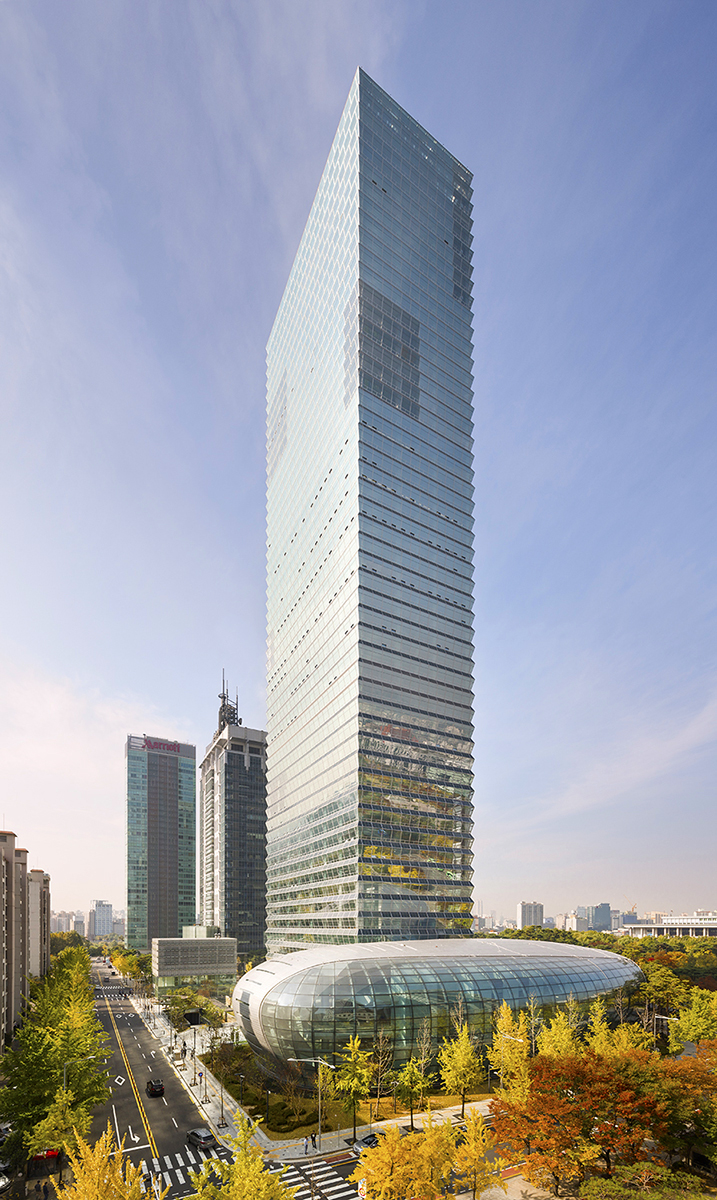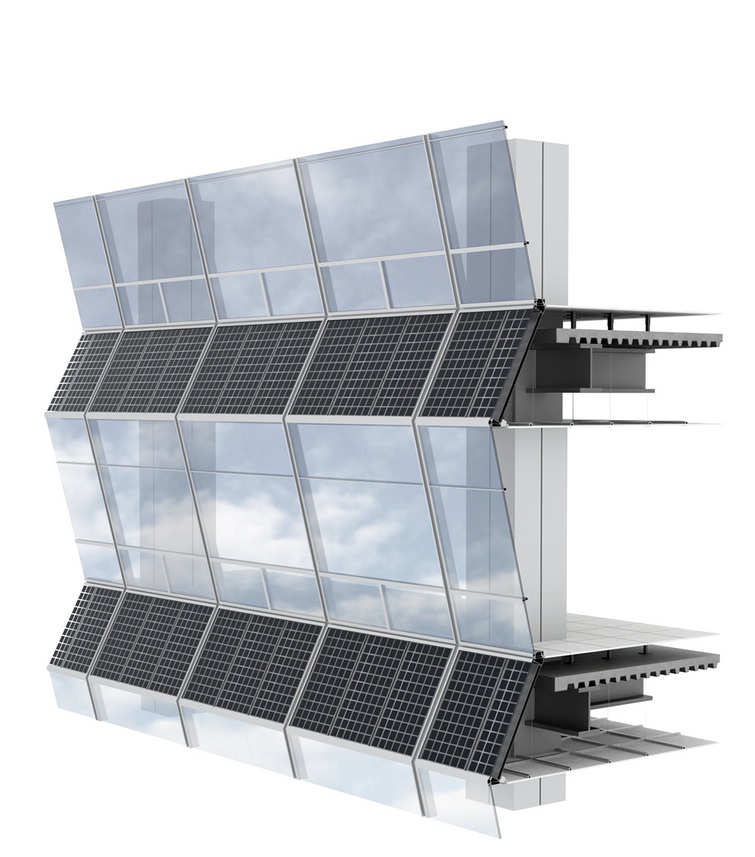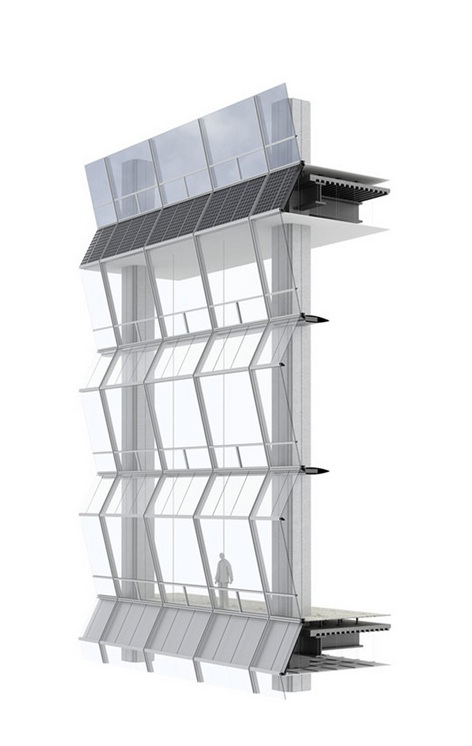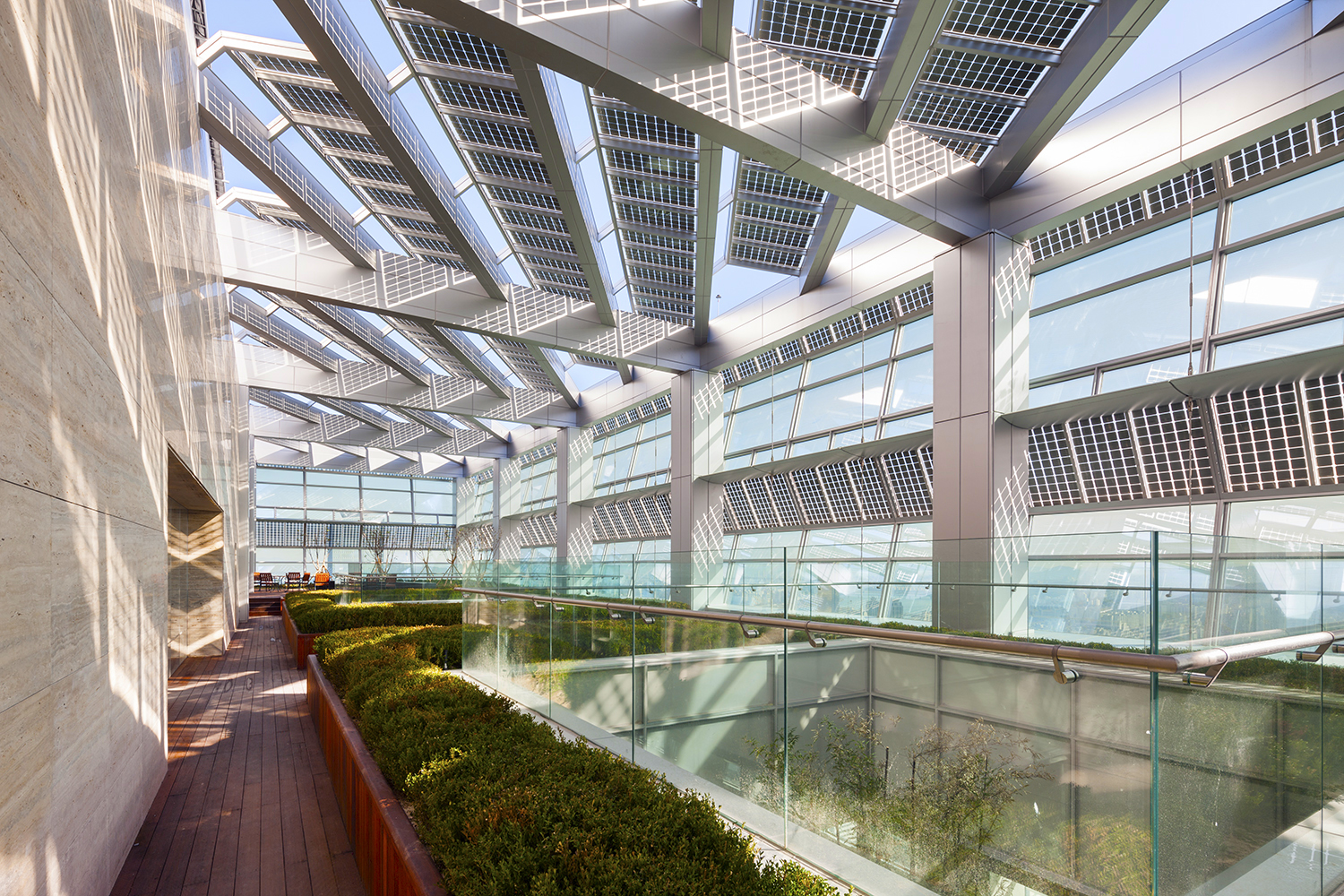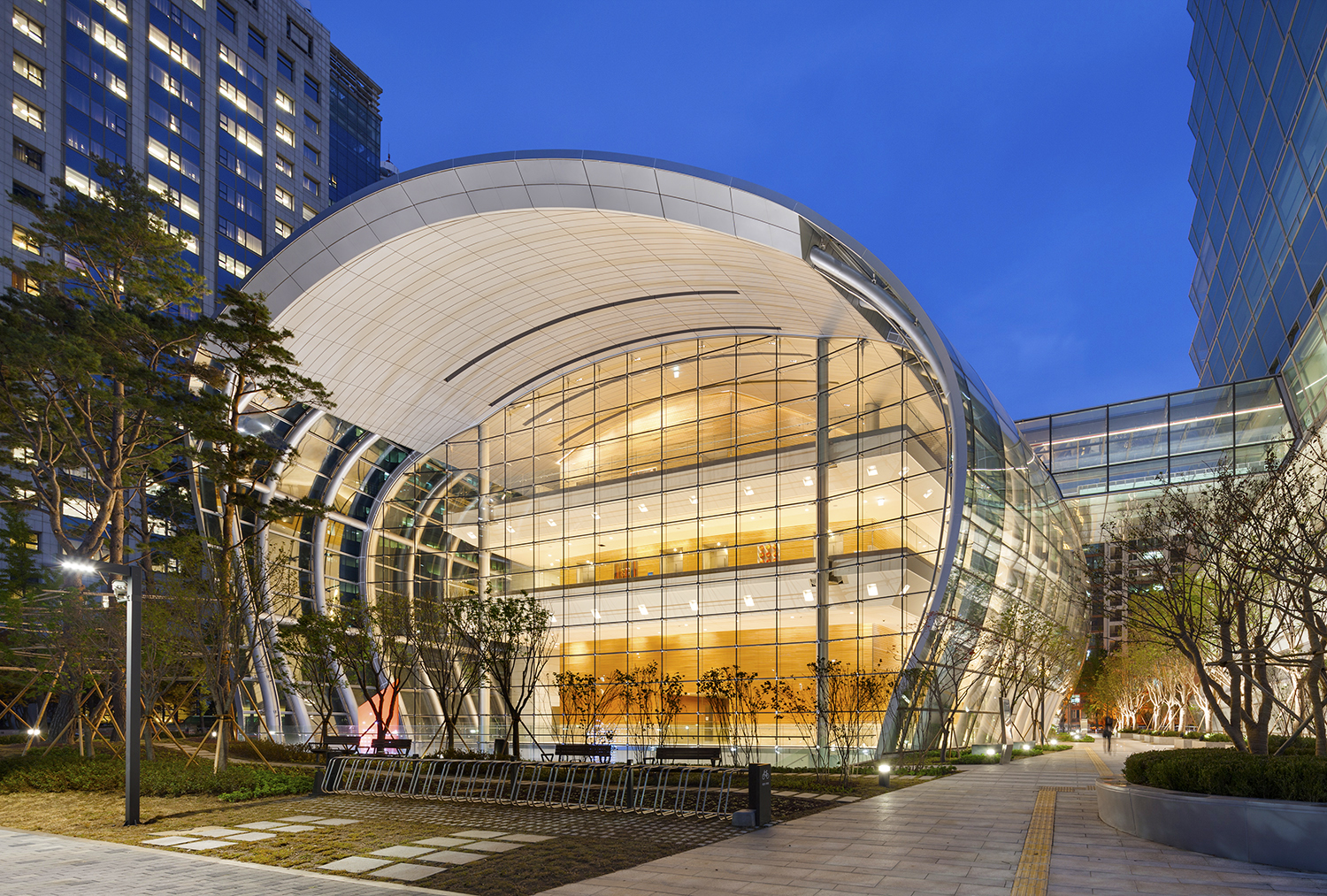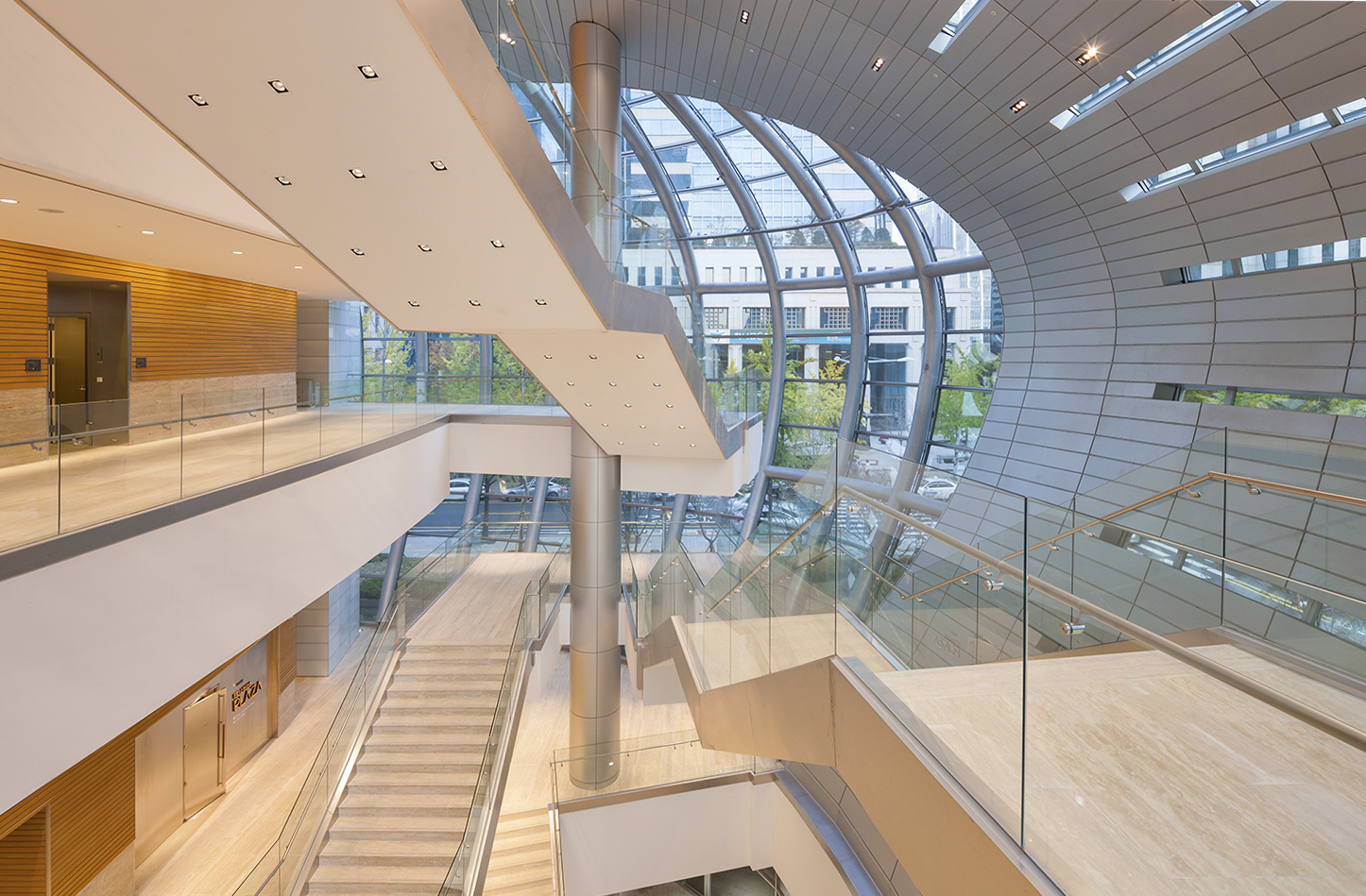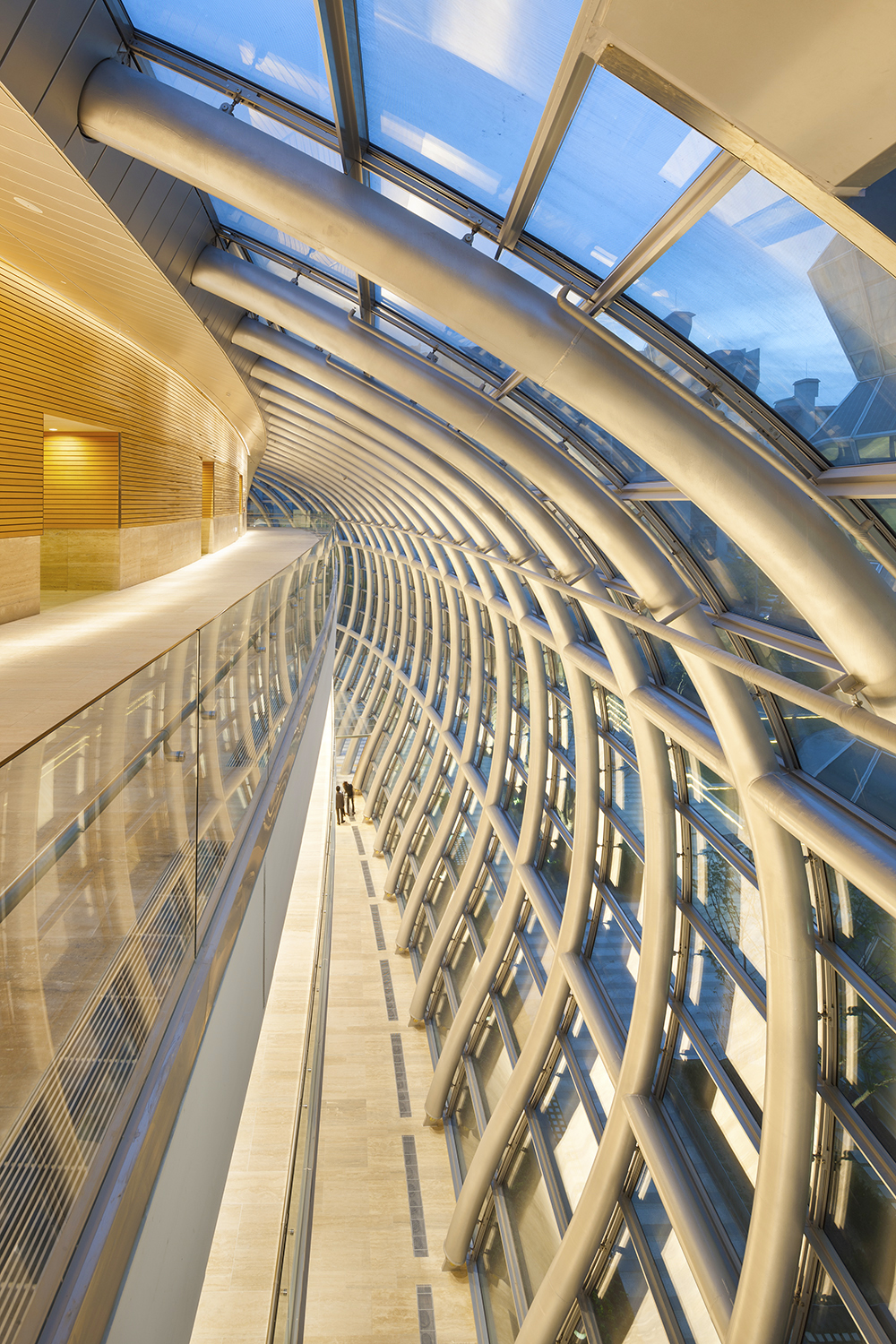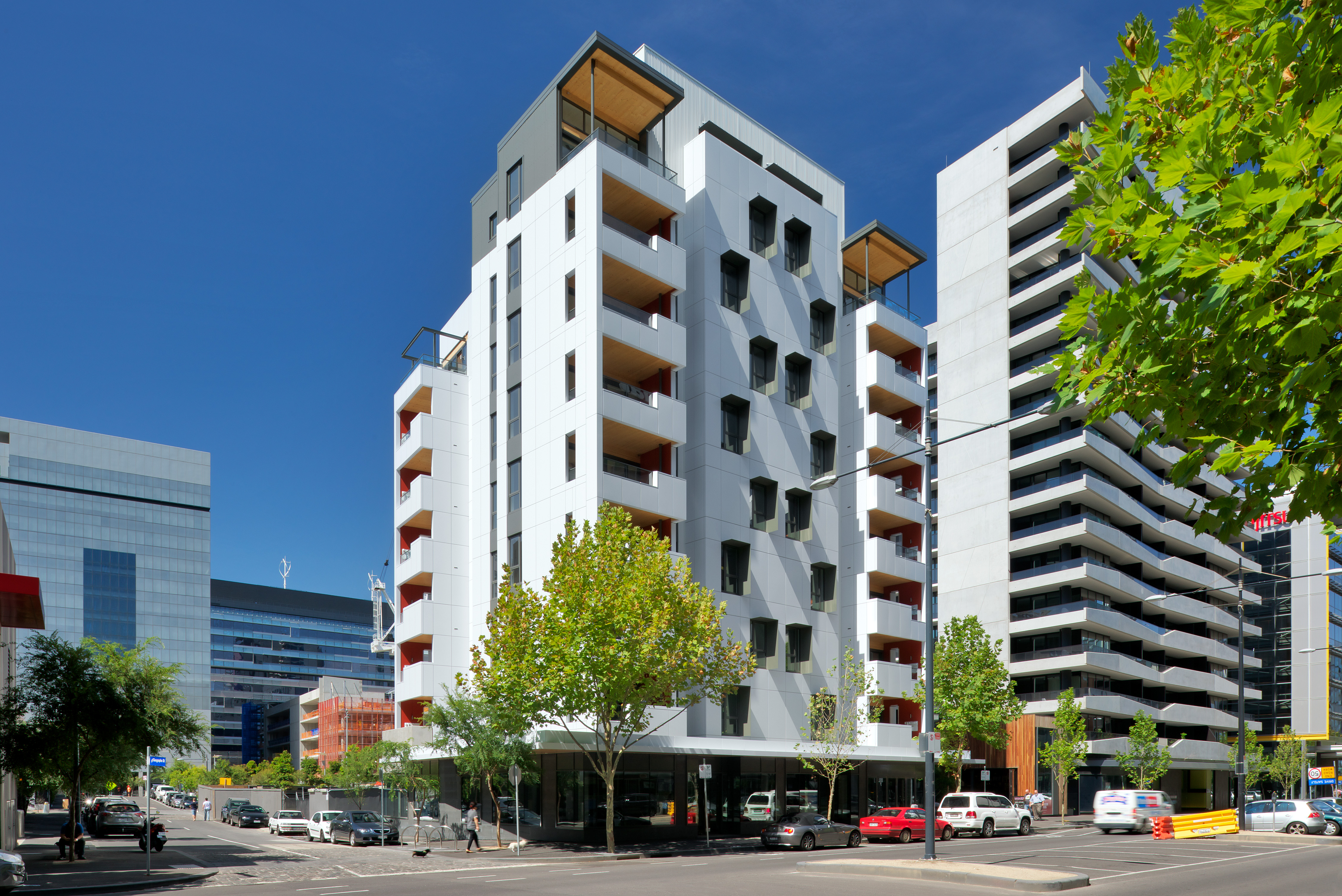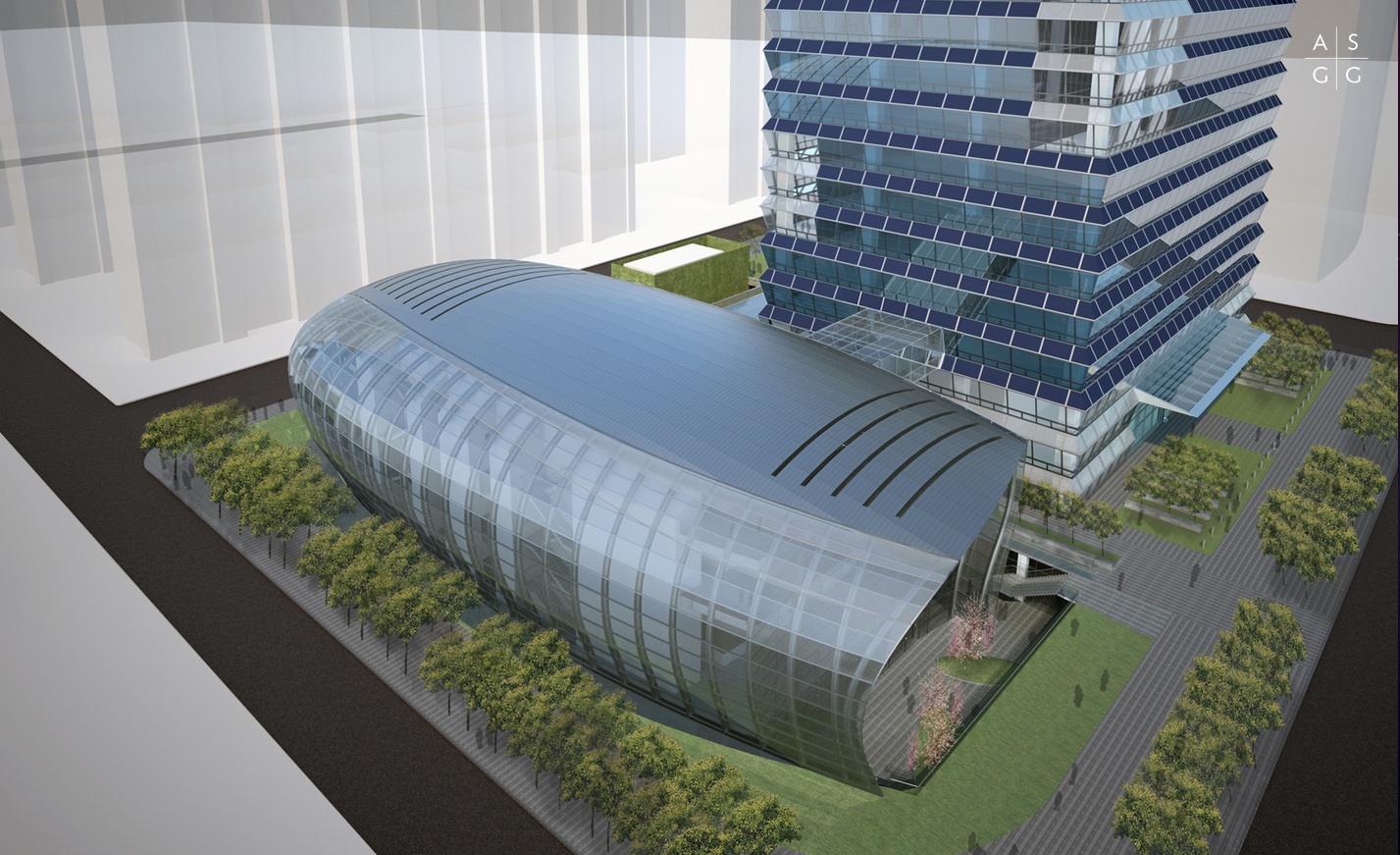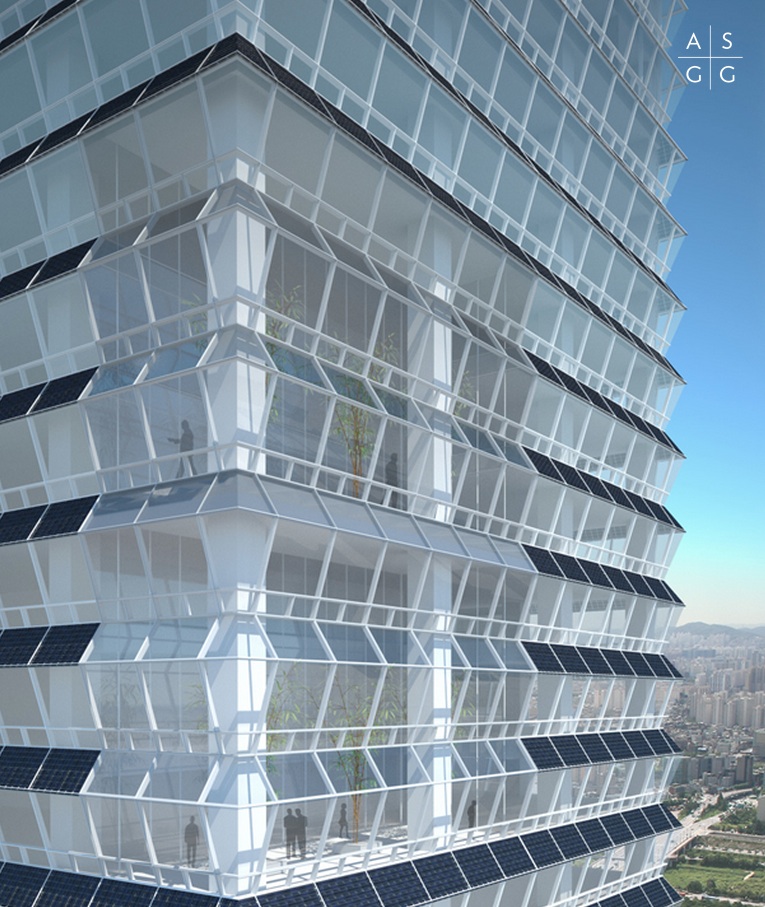Adrian Smith + Gordon Gill Architecture (AS+GG) has announced the public opening of the new head offices for the Federation of Korean Industries (FKI).
"FKI Headquarters represents a new exterior wall typology that both integrates significant quantities of photo voltaic panels into the exterior wall and slopes the vision glass at an angle that generates self-shading and allowing less reflective glass to be used. The result is a unique folded exterior texture that is both purposeful and distinctive" says Adrian Smith.
The 50-story, 240-meter tower features an innovative exterior wall, designed specifically for the project. The building’s unique skin will help reduce the internal heating and cooling loads and collect energy through photovoltaic panels that are integrated into the spandrel areas of the southwest and northwest facades.
By angling the spandrel panels 30 degrees upward toward the sun, the design is able to maximize the amount of energy collected, generating enough power to help maintain the electrical systems throughout the tower core and the office spaces.
Just below the spandrel panels, the vision panels are angled 15 degrees downward toward the ground, minimizing the amount of direct sun radiation and glare. Together, the alternating spandrel and vision panels create a dynamically rippled façade that is both environmentally progressive and visually striking, giving the tower a unique architectural presence on the skyline.
The interior of the building takes advantage of the floor to ceiling windows of the exterior wall, offering an abundance of natural light to office spaces and corridors as well as extensive views of neighboring Yeoido Park, the Han River and the surrounding city of Seoul.
The completed tower includes several indoor garden/atrium spaces that enhance the workplace environment with natural elements of wood, bamboo and other native plants. The roof top atrium space features more custom photovoltaic panels.
“The ideal angle of the PV panel placement on the roof was studied in detail,” says Gordon Gill, “In a relatively unconfined space, PVs would normally be angled upward at 30 degrees but within the limited area of the roof, we determined that a 10-degree angle allowed for more panels to be installed closer together, minimizing the effect of the panels casting shadows on each other and ultimately producing more solar energy for the building.”
AS+GG Partner Robert Forest adds, “The tower features one of the most efficient solar electric facades in the world in a cost effective manner, proactively expanding Korea's goal of advancing renewable energy generation in buildings.”
The sculptural podium piece is located on central Yeoi-Dae-Ro Avenue, further promoting the tower’s public identity. The podium amenities, available for public use include a banquet hall, central restaurant and conference center.
The podium will be available for international conferences with a large first floor banquet hall and smaller conference rooms of various sizes located on the second and third floors. The multi-purpose nature of the podium is another way that the FKI building will become a new city centerpiece for Seoul.
AS+GG collaborated with the engineering firms Thornton Tomasetti and Environmental Systems Design, as well as the local firm Chang-Jo Architects, on the project.
The Building Team included:
Adrian Smith + Gordon Gill Architecture (AS+GG) is dedicated to the design of high-performance architecture in a wide range of typology and scale, from low- and mid-rise residential, commercial and cultural buildings to mixed-use supertall towers and new cities. The office uses a holistic, integrated design approach that explores symbiotic relationships with the natural environment. AS+GG is currently working on projects for clients in the United Arab Emirates, Saudi Arabia, China, and the United States. The partnership was founded in 2006 by Adrian Smith, Gordon Gill and Robert Forest. For more information, please visit www.smithgill.com.
Thornton Tomasetti provides engineering services to clients worldwide on projects of all sizes and complexity. Thornton Tomasetti is responsible for the structural design of some of the world’s tallest buildings, including the Petronas Towers, Taipei 101, Ping An International Finance Center in China and Federation Tower in Russia. The firm is committed to creating the best structural solutions through technical ingenuity, pursuit of excellence and responsiveness to client needs. Thornton Tomasetti has offices across the United States and in Asia, Europe and the Middle East. For more information, please visit www.ThorntonTomasetti.com.
Environmental Systems Design, Inc. (ESD) has provided engineering design solutions on thousands of buildings in the United States and throughout the world. With over 220 engineering and design professionals, ESD is one of the largest consulting engineering firms in the Midwest. ESD offers consulting engineering design services in mechanical, electrical, plumbing, fire protection, LEED, sustainable design, commissioning, and technology. ESD supports a diverse range of markets including commercial, health and science, education, mission critical, residential, assembly, cultural, theaters, energy plants, transportation and international. For more information, please visit www.esdesign.com.
Since 1984, Chang-jo Architects has been one of the leading professional architectural firms in Korea, providing total and comprehensive design services in architectural design, urban planning, landscape design, engineering and construction management. By possessing such an integrated core of services, they deliver to their clients the best service and value through intelligent design and advanced technology. Learn more about Chang-jo Architects at www.cja.co.kr.
Related Stories
| Aug 11, 2010
ZweigWhite names its fastest-growing architecture, engineering, and environmental firms
Management consulting and research firm ZweigWhite has identified the 200 fastest-growing architecture, engineering, and environmental consulting firms in the U.S. and Canada for its annual ranking, The Zweig Letter Hot Firm List. This annual list features the design and environmental firms that have outperformed the economy and competitors to become industry leaders.
| Aug 11, 2010
SSOE, Fluor among nation's largest industrial building design firms
A ranking of the Top 75 Industrial Design Firms based on Building Design+Construction's 2009 Giants 300 survey. For more Giants 300 rankings, visit http://www.BDCnetwork.com/Giants
| Aug 11, 2010
Guggenheim to host live online discussion of Frank Lloyd Wright exhibition
The Solomon R. Guggenheim Museum launches the Guggenheim Forum, a new series of moderated online discussions among experts from a variety of fields that will occur in conjunction with major museum exhibitions.
| Aug 11, 2010
Best AEC Firms of 2011/12
Later this year, we will launch Best AEC Firms 2012. We’re looking for firms that create truly positive workplaces for their AEC professionals and support staff. Keep an eye on this page for entry information. +
| Aug 11, 2010
Report: Building codes and regulations impede progress toward uber-green buildings
The enthusiasm for super green Living Buildings continues unabated, but a key stumbling block to the growth of this highest level of green building performance is an existing set of codes and regulations. A new report by the Cascadia Region Green Building Council entitled "Code, Regulatory and Systemic Barriers Affecting Living Building Projects" presents a case for fundamental reassessment of building codes.
| Aug 11, 2010
Call for entries: Building enclosure design awards
The Boston Society of Architects and the Boston chapter of the Building Enclosure Council (BEC-Boston) have announced a High Performance Building award that will assess building enclosure innovation through the demonstrated design, construction, and operation of the building enclosure.
| Aug 11, 2010
Portland Cement Association offers blast resistant design guide for reinforced concrete structures
Developed for designers and engineers, "Blast Resistant Design Guide for Reinforced Concrete Structures" provides a practical treatment of the design of cast-in-place reinforced concrete structures to resist the effects of blast loads. It explains the principles of blast-resistant design, and how to determine the kind and degree of resistance a structure needs as well as how to specify the required materials and details.


